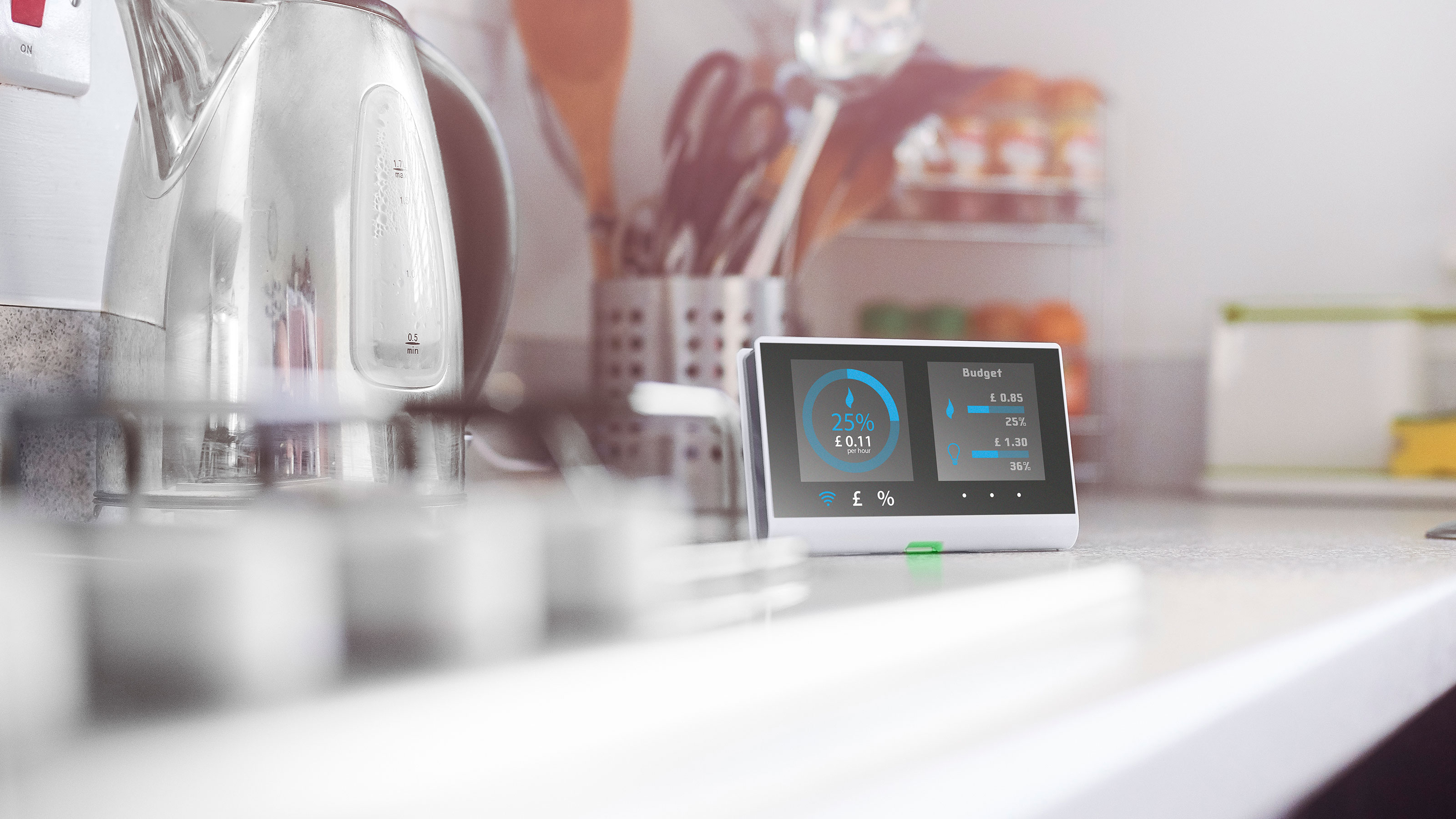Off peak energy rebate scheme begins 23 January, National Grid confirms
National Grid launches its first off peak energy rebate scheme this week, which is designed to stave off blackout warnings this winter

National Grid is launching its first session of its off peak energy rebate scheme, the Demand Flexibility Service, at 5pm on Monday 23 January, following fears over power supplies. The off peak energy rebate scheme has been introduced to reduce the risk of rolling blackouts this winter.
The Demand Flexibility Service was first announced in winter 2022, and will ask customers to avoid using electricity during peak usage hours throughout the winter months. In return they will receive rebates on their energy bills.
You can try our energy saving tips to help lower your home's energy usage and potentially save money on your bills.
What is the Demand Flexibility Service?
The Demand Flexibility Service is an off peak energy rebate scheme designed to ease the burden on the Grid when demand is at its highest. However, it could also help homeowners mitigate energy price rises and save money by incentivising them to use energy at lower demand times.
National Grid hopes the scheme will lead to around two gigawatts of reduced demand, enough to power about 600,000 homes, and stave off the risk of "unlikely" blackout warnings this winter.
The scheme will be managed by energy suppliers and officially was meant to begin on 1 November. The National Grid ESO, the electricity system operator for the UK, originally issued an industry notice to participating energy supplies in the scheme that it was considering activating the first session on the evening of Tuesday 29 November, when energy supply was expected to be tight. However this plan was later cancelled. The first session will instead take place at 5pm on 23 January.
Households will reportedly save up to £10 a day for using appliances outside of peak times (typically 5-8pm when power demand is at its highest, but the first session will take place between 5-6pm), but this will depend on your suppliers’ rates.
Customers are being encouraged to contact their energy supplier (providing they have signed up to the scheme) and opt-in to participate. However, only households with smart meters will be able to benefit from the scheme.
How will the scheme work?
It has been expected that this winter there will be 12 tests, or sessions.
Suppliers will send either texts, emails or letters with at least 24 hours’ notice for these sessions, along with instructions on how to benefit. If you think you can use less power during the scheduled session then you can opt in via email or your supplier’s app.
For example, avoiding using appliances that consume a lot of electricity, such as dishwashers (which use around 2kWh per load) and tumble dryers (around 4kWh), during peak periods will lead to households being offered rebates.
Your supplier will confirm how much you’ll be asked to reduce your electricity by, and which off-peak electricity times to do this.
Why was the first session postponed?
National Grid briefly warned on 29 November that electricity supply would be low on Monday 1 December evening, and even though this was then cancelled within an hour, it was the second warning in less than a week.
This warning came amid the wider energy crisis in Europe whereby Russia has reduced gas flow into Europe following its invasion of Ukraine.
When there are shortfalls in the UK's power grid, imports from French nuclear reactors have been used, but forecasts predict a significant drop in the amount of power the UK will be able to import.
France's nuclear power plants generate 75% of the country's electricity, but more than half of the reactors run by state energy company EDF have closed due to maintenance and technical issues.
This will mean that the difference between the amount of electricity available for households and the amount they will use during peak hours will be tight.
National Grid gave energy suppliers notice that the first Demand Flexibility Service session could begin on Tuesday night, but a UK gas-fired power station reportedly stepped in on Monday to cover the requirement for extra supplies.
How much could I receive?
National Grid ESO has confirmed the incentive to participate in the Demand Flexibility Service will see households claim back £3 per kilowatt hour (kWh) saved.
Exactly how much you can earn will vary from supplier to supplier, but both Octopus Energy and OVO Energy have said that participating in each of the 12 sessions could help households recoup £100 in total over five months.
You could also save your energy usage by buying a smart plug with energy monitoring capability, such as the TP-Link Kasa Smart Power Strip.
How long does the scheme run for?
Households can sign up now to the service, which will run until March 2023.
How will I receive the rebate?
Following a session, your supplier will examine your smart meter readings to assess how much you have saved, and this rebate will be added to your account.
This money could be received either through credit on your energy account or by having it directly transferred to your bank account.
Which suppliers have signed up?
Suppliers don't have to take part in the Demand Flexibility Service, but these are the suppliers which have so far confirmed their participation:
Octopus Energy
Octopus Energy was the first supplier to officially sign up. Earlier this year Octopus conducted a pilot ESO trial of 10,000 households resulting in customers who reduced their energy consumption during two two-hour windows, between off-peak electricity times of 9-11am and 4:30-6:30pm, and saved an average of 23p per two-hour window.
Octopus is also offering 10,000 free electric blankets to its customers this winter.
British Gas
No details have been officially yet confirmed by British Gas, but it is expected that customers will need to reduce their usage by 30% to qualify for a rebate.
E.On
EON said it would be taking part in the scheme, and is in the process of outlining details to customers.
OVO Energy
Ovo Energy has announced a trial where customers can save up to £100 (or £20 a month) on their bills if, during off-peak hours before 4-7pm, they use less than 12.5% of the energy their home consumes in a day.
This trial, called ‘Power Move’, is separate to the National Grid scheme, but will also run until March 2023.
Flexitricity
The Scottish utility company said last month that it is ready to provide access to the scheme.
When are off-peak electricity times?
Some electricity providers offer off-peak energy tariffs that charge less for energy used at certain times of the day. These tariffs currently include the traditional Economy 7 and 10 tariffs, which require having a special meter or equivalent installed, as well as SSE's Off-peak E and Green Energy UK's Tide Tariff.
These times tend to be at night, between 10pm and 8am, but they can vary between suppliers and tariffs. Some suppliers also offer off peak tariffs during daytime hours, often between 11am and 5pm.
Households on these tariffs can benefit by scheduling high-power appliances such as dishwashers to begin their cycles at the most affordable times.
Which households could benefit from the rebate?
Peak electricity hours (5-8pm) are after most people have finished work, and for busy households it could be challenging to reduce electricity usage during this time.
“Using dishwashers, washing machines and tumble dryers can be delayed, but consumers will probably still want to cook their dinner between 5.00pm and 8.00pm, maybe make a cup of tea, turn the telly on and turn the lights on, so the real term benefit could be quite limited,” says energy efficiency expert and contributor to Homebuilding & Renovating, Tim Pullen.

Tim is an expert in sustainable building methods and energy efficiency in residential homes.
“However, getting a rebate for shifting when things like dishwashers and tumble driers are used has to be a good idea."
The charity Electrical Safety First has warned that one of the risk households need to consider with the scheme is the danger it could cause.
For example, it is essential to mitigate the risk of fire if a participating chooses to leave an appliance on at night, when a homeowner might be less likely to notice if something goes wrong.
Get the Homebuilding & Renovating Newsletter
Bring your dream home to life with expert advice, how to guides and design inspiration. Sign up for our newsletter and get two free tickets to a Homebuilding & Renovating Show near you.
Jack has worked in journalism for over a decade and was the former News Editor of Homebuilding & Renovating between 2019 until 2023. In his time as News Editor he broke the most relevant and beneficial stories for self builders, extenders and renovators, including the latest news on the construction materials shortage, planning permission and green initiatives. In 2021 he appeared on BBC's The World at One to discuss the government's planning reforms.
He enjoys testing new tools and gadgets, and having bought his first home in 2013, he has renovated every room and recently finished a garden renovation.

